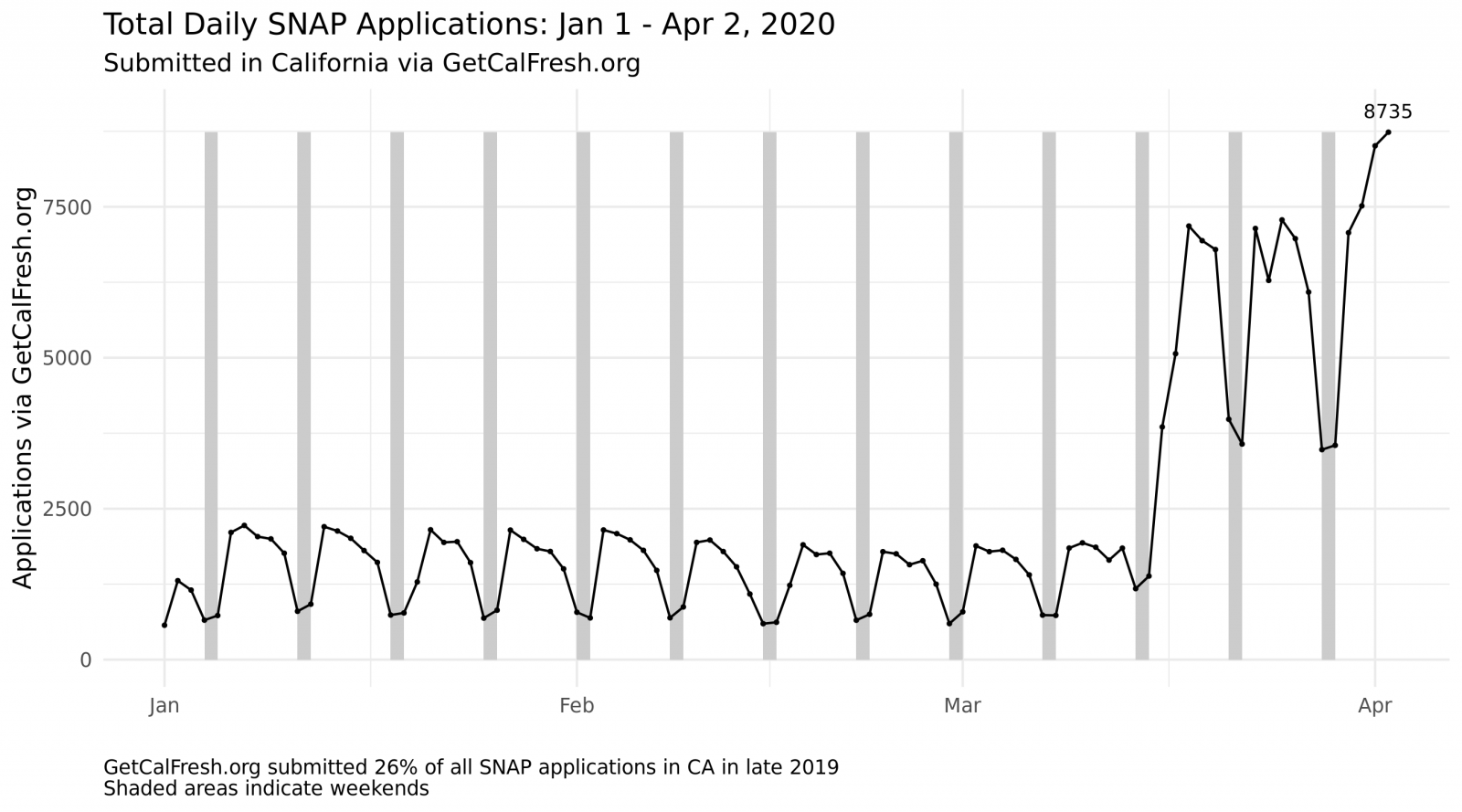Emergency Changes to SNAP (Food Stamps) and WIC Adjust to Thousands of New Applicants During COVID-19
By Karena Yan
 By Karena Yan
By Karena Yan
SNAP and WIC help connect millions of individuals and families to affordable, nutritious foods. Here are how these programs are evolving
Healthy food and nutrition are important not only for managing diabetes but also for the proper function of your immune system. The World Health Organization (WHO) recommends that people maintain a nutritious diet and limit their alcohol and sugary drink consumption to improve our bodies’ ability to fight off viruses like COVID-19.
At the Tufts’ Food and Nutrition Innovation Council (FNIC) Summit on April 16, experts in nutrition, healthcare, and policy gathered to discuss the implications of coronavirus on the affordability, accessibility, and sustainability of healthy food in our country. In addition to discussing the changes brought about by the pandemic, council members made food policy recommendations for the post-COVID future.
While coronavirus poses a challenge for the smooth operation of programs like the Supplemental Nutrition Assistance Program (SNAP) and the Special Supplemental Nutrition Program for Women, Infants and Children (WIC), the USDA’S Food and Nutrition Service has implemented emergency changes to these programs to ensure access to healthy food for program recipients.
What are SNAP and WIC?
SNAP, previously referred to as food stamps, is a federal program that provides nutrition benefits for eligible, low-income individuals and families to support their ability to purchase healthy foods. These benefits are provided via an Electronic Benefits Transfer (EBT) card, which acts as a debit card at authorized retail food stores.
Similarly, WIC provides federal grants to low-income pregnant, breastfeeding, and non-breastfeeding postpartum women, and to infants and children up to age five who are found to be at nutritional risk. WIC serves about half of all infants in the United States, and these grants supplement the purchase of foods, health care referrals, and nutrition education.
How has coronavirus impacted SNAP and WIC?
As unemployment has reached nearly unprecedented levels , enrollment for SNAP and WIC has seen a marked increase. In California, application volume to receive CalFresh, the state’s version of SNAP, has seen a 350 percent increase since the crisis began. More than 57 percent of these applicants reported that they lost a job within the previous 30 days, compared to 16 percent in January.
Moreover, panic buying and stockpiling during the epidemic have made the availability of SNAP- and WIC-eligible products scarcer. This is particularly true for WIC recipients, who may only use their funds on a limited list of products that have been selected as low-cost and nutritious. For those who do not receive WIC benefits, the National WIC Association asks shoppers that if they are choosing between two items, one of which is WIC-eligible, to avoid buying or hoarding WIC-eligible products, including infant formula.
What emergency changes have been implemented to support SNAP and WIC?
The USDA has implemented a 40 percent increase in overall SNAP benefits, which amounts to a $2 billion monthly allotment in addition to the usual $4.5 billion that goes toward monthly SNAP benefits. WIC has also received $500 million in additional funding to cover increases in program participation.
Additionally, while SNAP and WIC have some requirements that are challenging to meet during COVID-19, such as mandatory in-person visits to enroll or re-enroll in the programs, the USDA’s Food and Nutrition Service has offered many accommodations to these requirements, in addition to providing extra funding to both programs. Several of these program changes are highlighted below. To see the full list of changes, please see here.
SNAP:
- Application Processing: State agencies can extend certification periods and temporarily waive periodic report form submissions for enrolled households. Additionally, in lieu of face-to-face interviews for enrollment, states are waiving the interview requirement or conducting interviews via telephone.
- Pandemic EBT (P-EBT): States are now allowed to provide benefits (similar to SNAP or “food stamps”) to children who normally receive free or reduced-price school meals.
- Able-bodied Adults without Dependents (ABAWDs) Time Limit Suspension: States may temporarily suspend the time limit associated with ABAWD work requirements, which ordinarily terminate an ABAWD’s SNAP benefits after three months of unemployment.
WIC:
- Physical Presence Waivers: Recipients can enroll or re-enroll in WIC without visiting a clinic in person and postpone certain medical tests.
- Remote Benefit Issuance Waivers: WIC agencies can issue benefits remotely in lieu of in-person pick-ups.
- Food Package Substitution Waivers: WIC agencies can substitute certain food products when availability is limited, as well as change their approved-foods lists as necessary.
What happens after COVID-19 is over?
At the Tufts’ FNIC Summit, council members discussed the importance of maintaining some, or all, of these measures after the crisis. Requirements such as in-person visits and lengthy renewal processes pose barriers for SNAP/WIC recipients and risk delaying or inhibiting people’s ability to access these services, regardless of the circumstances. Moreover, given the sharp uptick in SNAP/WIC enrollments, the increased efficiency and accessibility of these programs will greatly benefit recipients long after the “end” of the coronavirus crisis.
Furthermore, council members hope even further adjustments to SNAP/WIC are made in the future. While these programs have been relatively effective in facilitating access to healthy foods for low-income individuals and families, the FNIC calls for greater emphasis on nutrition within the programs, such as by providing a subsidy for fruit and vegetable purchases or removing sugar-sweetened beverages from the list of eligible purchases.
Such incentives can provide vast benefits for both individual health and healthcare costs. For example, a 30 percent fruit and vegetable incentive for SNAP participants is estimated to save $6.77 billion in healthcare costs over a lifetime. Thus, while some headway has been made to these SNAP/WIC programs, advocates must pursue not only the permanence of these adjustments but also additional changes to the programs’ health and nutrition standards and practices.








